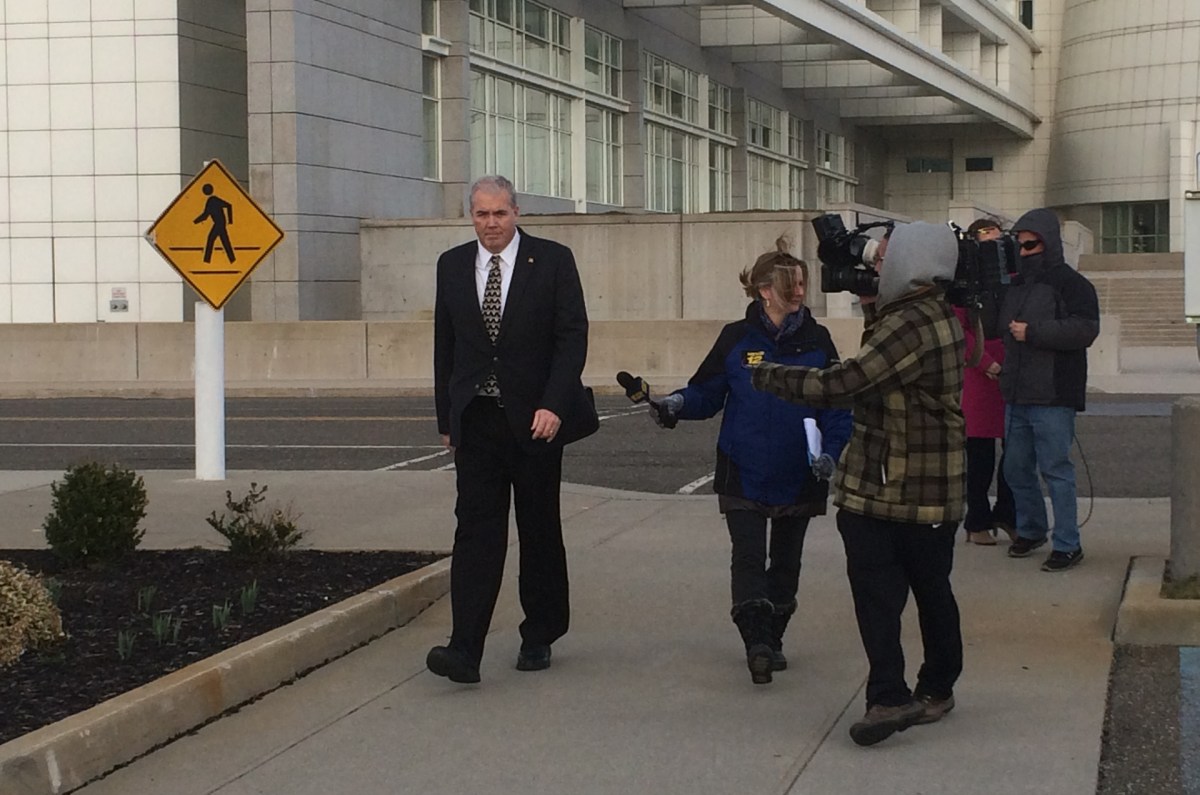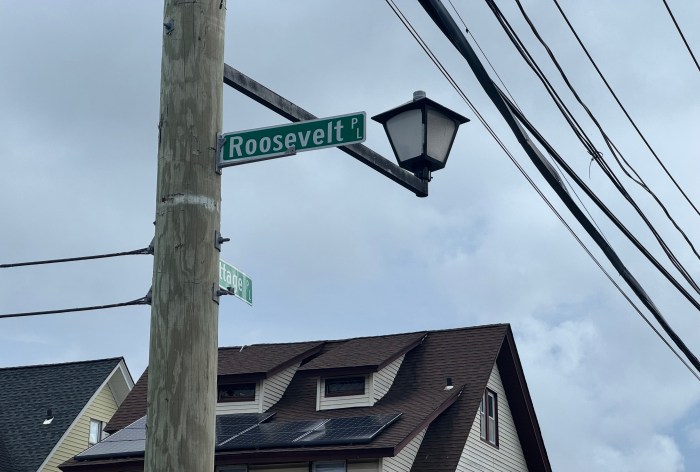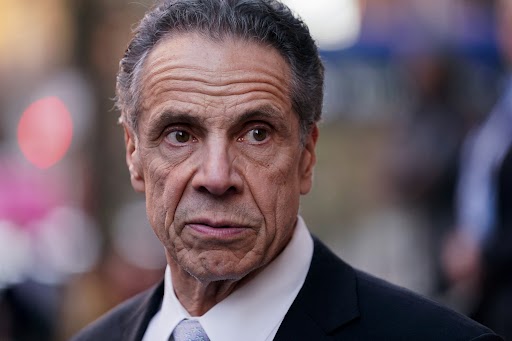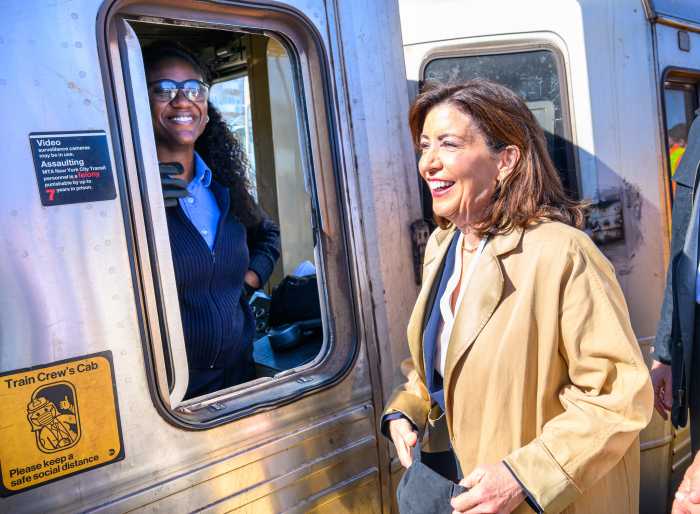Suffolk County Conservative Party Chairman Ed Walsh was convicted Thursday on federal wire fraud and theft of funds charges for collecting $200,000 in salary for hours he spent golfing, gambling and politicking while he was on the clock as a correction lieutenant at Suffolk County jail.
He was described as both a thief and a victim of politically motivated investigators when prosecutors and defense attorneys gave closing arguments Thursday following the three-week-long trial at Central Islip federal court.
“The defendant thinks that because because he has influence…he’s special,” Raymond Tierney, assistant U.S. Attorney for the Eastern District of New York, told the jury. “The defendant isn’t special, the rules apply to him, and he needs to be held responsible for his actions.”
Federal prosecutors made their case by comparing Walsh’s time sheets with records from Foxwoods Casino in Connecticut, various Long Island golf courses, the Conservative Party, his cell phone, bank transactions and other documents between 2011 and 2014. Attorneys for Walsh, who retired shortly before the trial began so he could collect his pension, had argued that he was free to come and go as he pleased and make up the hours later.
Among the witnesses who took the stand at the high-profile trial were U.S. Rep. Lee Zeldin (R-Shirley), Judge Anthony Senft and Suffolk Democratic Chairman Richard Schaffer, who also serves as Babylon Town Supervisor. The prosecution’s star witness was Suffolk County Sheriff Vincent DeMarco, the county’s highest ranking elected official who’s also a member of the Conservative Party, which counts Suffolk as having its highest enrollment in New York State. DeMarco testified that he brought the case to the FBI after Suffolk County District Attorney Thomas Spota refused to subpoena Walsh’s records.
After quoting Walsh telling internal affairs investigators that Spota wouldn’t prosecute him, Tierney questioned the credibility of the witnesses called by the defense. They included the Hampton Hills Golf Course manager who was unaware that Walsh’s golf cart rental receipts had the correct time on them despite the defense’s claims to the contrary, as well as a deputy warden and former Conservative Party committeeman who said that he’d disapprove of subordinates playing golf while they’re on the clock but didn’t have a problem with Walsh doing so.
Leonard Lato, one of Walsh’s defense attorneys, mainly questioned the credibility of the sheriff, whom he called “credibility starved,” “unworthy of belief” and a “vengeful narcissist.” At one point he suggested DeMarco should be the one on the other side of the jail cell bars.
“Mr. DeMarco is not only biased against Mr. Walsh, he’s committing a crime,” Lato said, drawing an objection from Tierney that Judge Arthur Spatt overruled. “Ed Walsh should not be in this courthouse; Vincent DeMarco should be as a defendant.”
The jury never heard what led to the falling out between Walsh and DeMarco. Walsh had helped DeMarco twice get re-elected, and DeMarco had promoted Walsh to be his liaison to outside law enforcement agencies in 2006.
“Something happened and the government never elicited what it was,” Lato said. “Mr. DeMarco knows, but he’s not saying.”
Lato also continued to call into question the accuracy of cell-site data authorities used to map where Walsh was on days when he claimed to be at work. Prosecutors called a cell phone engineer to explain how the information proved where Walsh was, but a defense expert witness suggested that the data wasn’t reliable. The verdict suggested that the jury sided with the prosecution’s assertion that the data was correct.
Tierney pointed out that one investigator had spotted Walsh, while he knew he was the target of an internal affairs investigation, using a dirt road to leave the jail before his shift was over instead taking the main entrance.
“His sneaking around is evidence of his guilt,” Tierney said.
Apparently the jury didn’t need much time to agree. Their deliberation lasted about an hour.



































